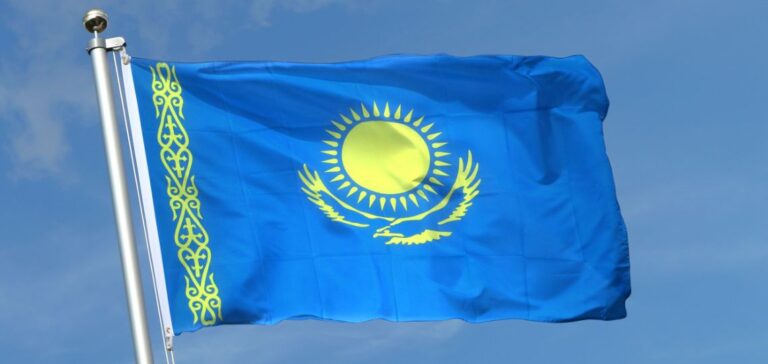Mineral-rich Kazakhstan has announced a major tax reform concerning uranium mining. A decree signed by President Kassym-Jomart Tokayev provides for a gradual increase in the tax on uranium mineral extraction, rising from the current 6% to 9% in 2025, then to a maximum of 18% in 2026.
Mining tax reform
Kazatomprom, Kazakhstan‘s leading uranium mining company, has stated that this reform will have various repercussions on its joint ventures and subsidiaries. The new tax, based on a differentiated rate, will take production volumes into account. Mines producing up to 500 tonnes of uranium a year will be taxed at 4%, while those producing more than 4,000 tonnes a year will be taxed at 18%. These higher taxes could also have an impact on buyers of Kazakh uranium, notably China, their main customer.
This reform, which comes into force on January 1, 2026, replaces the old system based on production costs. Until now, the tax was calculated on the basis of the weighted average market price of uranium, multiplied by the quantity extracted, with a fixed rate of 6%.
Economic impact and projections
The tax adjustment is designed to bring government revenues more into line with fluctuations in the world uranium market. The decree also introduces additional increases based on U3O8 uranium prices. For example, if the price exceeds $70/lb, an additional tax of 0.5% will be applied. This surcharge can reach 2.5% if prices exceed $110/lb.
This decision is crucial for Kazakhstan, the world’s leading uranium producer, which is seeking to maximize revenues from its natural resources while balancing the needs of mining companies. Forecasts for 2024 are not affected by this reform, according to Kazatomprom, but companies will have to adjust their financial and operational strategies to adapt to the new tax situation from 2025 onwards.
Industry reactions and analysis
Industry experts believe that higher taxes could encourage mining companies to optimize production and invest in more efficient technologies to maintain profit margins. However, there may also be concerns about Kazakhstan’s attractiveness for foreign investment, particularly in the context of global competition for mineral resources.
According to analysts, the reform could lead to an increase in production costs, potentially impacting world uranium prices. The ability of companies to transfer these additional costs to the market will depend on the dynamics of supply and demand.
The evolution of this fiscal policy will be a key indicator to watch for investors and companies in the energy sector, as Kazakhstan continues to play a major role in global uranium supply.
Kazakhstan’s ambitious tax reform aims to boost national revenues while responding to the economic challenges posed by fluctuations in the uranium market. Mining companies will have to navigate this new framework skilfully to maintain their competitiveness and profitability.






















